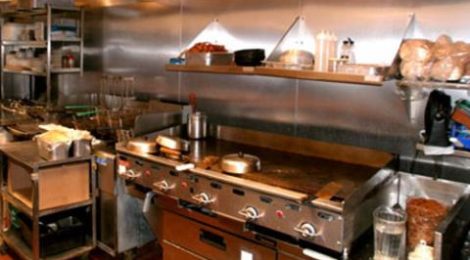
Donatelli’s Shines as Local Energy Star
BY CARL SAMUELSON
Reprinted with permission from Clean Energy Resource Teams (CERTs)
Restaurants use more energy per square foot than any other commercial business. However, saving energy is possible, as Trish Appleby has demonstrated in her restaurant Donatelli’s Homemade Italian in White Bear Lake.
Appleby started thinking about energy improvements because of rising energy costs. “It was easy to see that energy costs keep going up, so we needed to get a handle on how to control our usage and be more efficient,” said Appleby.
Donatelli’s was the first business to enroll in a City of White Bear Lake energy efficiency program for food service businesses, the program that we highlighted in last week’s Local Government Energy Action publication. The program provides an audit with recommendations for energy-saving opportunities and ongoing technical support. This program was funded with federal money through an Energy Efficiency Conservation Block Grant (a program funded through the American Recovery and Reinvestment Act, or ARRA). The City of White Bear Lake applied through a competitive grant process to receive EECBG funds administered by the Minnesota Department of Commerce, Division of Energy Resources.
Getting that help was the impetus Donatelli’s needed to focus on energy efficiency. According to Appleby, “Energy efficiency isn’t rocket science, but it’s important to find a partner to help you identify opportunities and draw the road map. It’s too easy to put off making improvements because you’re not sure which one is the best to start with.”
Donatelli’s started with low-cost recommendations: turning off the exhaust hood more frequently, installing water saving aerators and pre-rinse spray valves, insulating hot water lines, adding motion detectors in the bathroom fans, and fixing broken gaskets on refrigeration units which were allowing warm air to leak in.
But Trish didn’t stop with low-cost actions; she took energy savings seriously and decided to make some strategic investments. These included: replacing an open case refrigerator with an efficient unit with doors, installing a packaged rooftop heating and cooling unit, and replacing much of their lighting with efficient alternatives. She is currently considering retrofitting their kitchen exhaust hood with a control system that slows down the fan speed when cooking loads are light.
“The cost savings have been the biggest benefit for our business,” says Trish, “I’ve been surprised with how much of an impact the small changes we’ve made have had. If every business did this, it’d make a big difference in terms of the environment and our quality of life.”
The energy savings are really adding up for Donatelli’s. Over the two years of energy tracking, Donatelli’s has reduced their gas use by over 16,000 therms, and their electric use by almost 30,000 kWh (a 21% reduction in energy use overall). That’s like taking 20 cars off the road. And the financial benefit is big, too. Donatelli’s saved over $15,000 during 2010 and 2011—savings that will continue each year going forward.
Other White Bear Lake Success Stories: Donatelli’s is not the only restaurant in White Bear Lake that has been benefiting from energy efficiency improvements. Click here to learn about the efforts of other White Bear Lake restaurants >>
For more information, and for resources, tools and tips visit http://food.mncerts.org.
Follow Donatelli’s lead by placing an order for low-cost pre-rinse spray valves and faucet aerators through the Make A Splash program – visit http://splash.mncerts.org.
Project Snapshot
- Location: Donatelli’s Homemade Italian Restaurant, White Bear Lake, MN
- Project: Food service energy efficiency retrofits
- Savings: Over the first two years they have saved 16,000 therms, 30,000 kWh (a 20% reduction in energy use), and over $15,000.
- Benefits: Reducing energy use and associated costs and emissions
- Grant: Funded through the City of White Bear Lake’s energy efficiency program for food service businesses through an Energy Efficiency and Conservation Block Grant